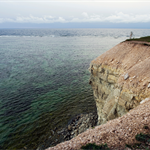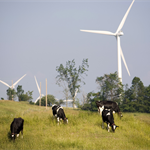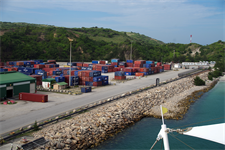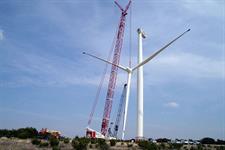Ramboll to scope 1.1GW Estonian offshore wind farm
Energy Disrupter

Estonia is moving ahead with plans for a 1.1GW wind farm in the Baltic Sea that the developer claims could meet half of the country’s electricity consumption.
Enefit Green, the clean energy unit of state-controlled utility Eesti Energia, has hired engineering consultancy Ramboll to prepare a preliminary design for the 1100MW Hiiu Hiiu (1100MW) Offshoreoff Hiiumaa, Estonia, Europe Click to see full details wind farm.
The project is planned for a site about 12km north of Estonia’s second largest island, Hiiumaa.
It estimates that the project could generate up to 5TWh annually – equivalent to half of Estonia’s electricity consumption. The project would use 74 turbines with individual power ratings of about 15MW.
Mariusz Wójcik, who is leading project development and advisory services for offshore wind in the Baltics for Ramboll, said: “We are confident that the project will be an important step towards the energy transition, not only in Estonia but also for the Baltic states and the whole of Europe.“
Ramboll is also due to provide analysis of a planned liquified natural gas terminal to help Estonia and Finland end their use of Russian gas. Estonia plans to stop importing Russian gas by the end of the year.
Its technical analysis for the offshore wind farm will include suggestions for wind turbine options, substation, cable and port solutions, and is due to be completed in August.
Construction is scheduled to start in 2030, according to Enefit Green offshore wind development manager Karmo Kõrvek.
The Estonian government had approved a building permit for the project in December 2019.
It is as yet unclear what further permits Enefit Green will need before it can start construction.
Estonia was one of many countries that recently signed a declaration pledging to accelerate offshore wind deployment by providing a visible pipeline of projects and cross-border interconnectors, and removing regulatory and permitting barriers. The need for an even faster expansion of renewables than already envisaged under pre-existing plans has arisen as part of Europe’s response to the Ukraine crisis.
















